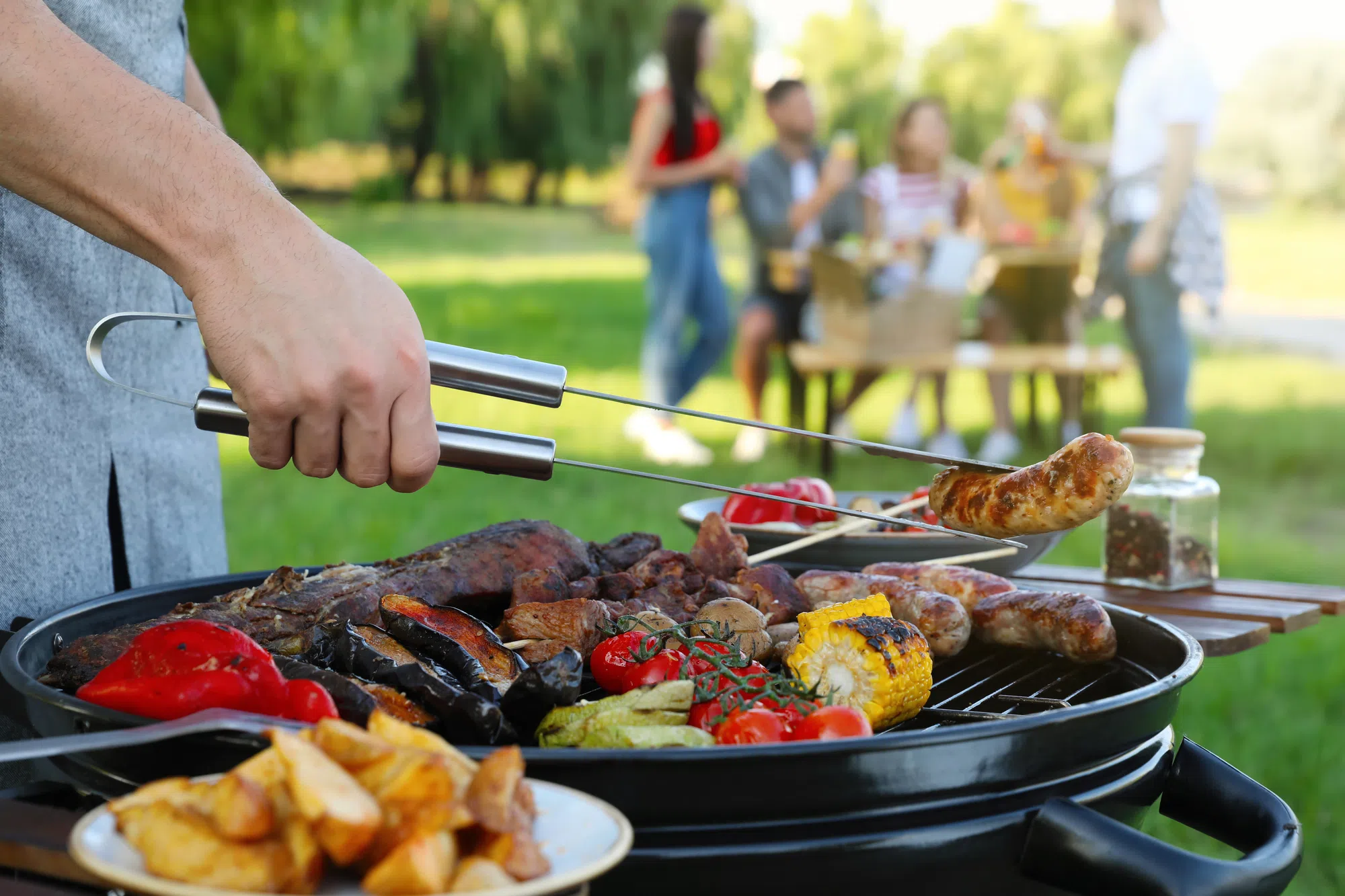Dr. Julie’s 7 tips for preventing foodborne illness

An interview with Dr. Julie Gatza (“Dr. Julie”),
Co-founder of the Florida Wellness Institute
Fall colors, cool days and football! The changing of the seasons has sports fans charging to their team’s stadiums on weekends and cheering on their teams win, while participating in a favorite pastime tradition – tailgating!
But nothing quashes fan spirit quite like food poisoning.
Dr. Julie Gatza of the Florida Wellness Institute is here to remind us that if we’re not careful, our much-anticipated Tailgate or backyard feast with family and friends could too easily result in miserable memories of foodborne illness.
Tackle tailgating with these food safe defensive pre and post-game tips from Dr. Julie:
1. Keep things clean: Wash your hands and wipe surfaces often
Germs that cause food poisoning can survive in many places and spread around the kitchen. The CDC recommends washing hands for 20 seconds with soap and water before, during, and after preparing food and before eating.
2. Separate: Don’t cross-contaminate
Raw meat, poultry, seafood, and eggs can spread germs to ready-to-eat foods unless you keep them separate. Use separate cutting boards and plates for raw meat, poultry, and seafood. Keep them and their juices away from other foods and keep them separate from all other foods in the fridge.
3. Cook to the right temperature
Food is safely cooked when the internal temperature gets high enough to kill germs that can make you sick. You can’t tell if food is safely cooked by checking its color and texture — the only way to tell if food is safely cooked is to use a food thermometer:
145F for whole cuts of beef, pork, veal, and lamb
160F for ground meats, such as beef and pork
165F for all poultry, including ground chicken and turkey
165F for leftovers and casseroles
145F for fresh ham (raw)
145F for fish or cook until flesh is opaque
4. Use multiple coolers
Pack raw meats separately from ready-to-eat foods, such as prepared salads, fresh fruits, and vegetables, and have a separate cooler for cold beverages. Ice for beverages should be kept separate from the ice used to cool food and beverages.
5. Regularly consume probiotics and fermented vegetables
They contain good bacteria which help destroy unhealthy microbes.
6. Germ-proof your recipes by adding antimicrobial spices
Crushed herbs and spices and their oils are safe for use in foods like soup, sauces, entrees, and salads. Their volatile antimicrobial compounds can inactivate foodborne pathogens in their vicinity.
7. Supply your digestive tract with digestive enzymes.
Digestive enzymes create a gastrointestinal environment good for digestion and poor for incubating harmful microbes.




Comments